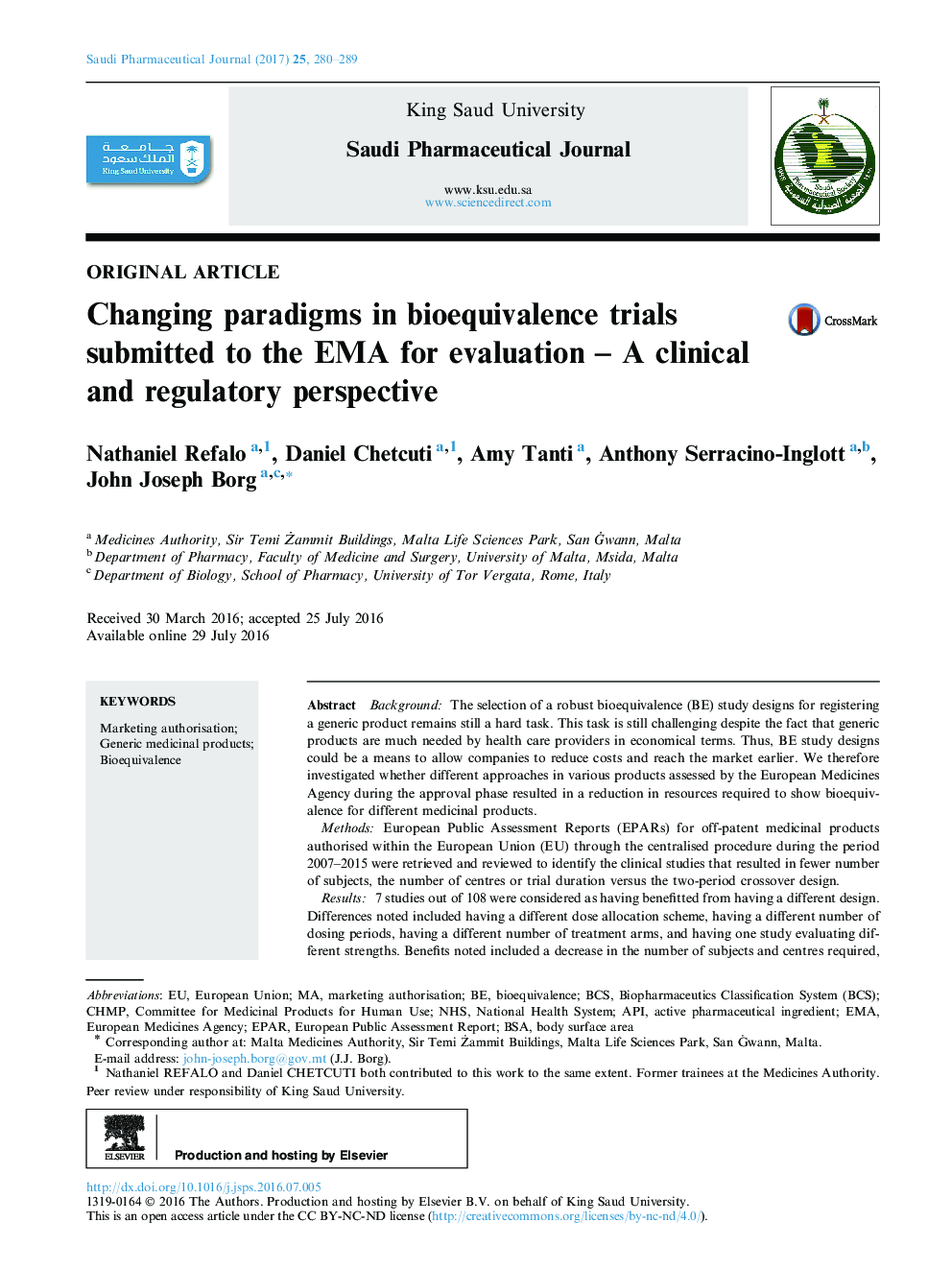| کد مقاله | کد نشریه | سال انتشار | مقاله انگلیسی | نسخه تمام متن |
|---|---|---|---|---|
| 5551602 | 1402955 | 2017 | 10 صفحه PDF | دانلود رایگان |

BackgroundThe selection of a robust bioequivalence (BE) study designs for registering a generic product remains still a hard task. This task is still challenging despite the fact that generic products are much needed by health care providers in economical terms. Thus, BE study designs could be a means to allow companies to reduce costs and reach the market earlier. We therefore investigated whether different approaches in various products assessed by the European Medicines Agency during the approval phase resulted in a reduction in resources required to show bioequivalence for different medicinal products.MethodsEuropean Public Assessment Reports (EPARs) for off-patent medicinal products authorised within the European Union (EU) through the centralised procedure during the period 2007-2015 were retrieved and reviewed to identify the clinical studies that resulted in fewer number of subjects, the number of centres or trial duration versus the two-period crossover design.Results7 studies out of 108 were considered as having benefitted from having a different design. Differences noted included having a different dose allocation scheme, having a different number of dosing periods, having a different number of treatment arms, and having one study evaluating different strengths. Benefits noted included a decrease in the number of subjects and centres required, decreases in study duration and a reduced number of studies required to demonstrate bioequivalence.ConclusionBioequivalence studies can be designed in a specific manner to require fewer resources to carry out. Fewer resources required to register a medicinal product, could impart an advantage to companies (such as to be first on the market) or could even translate to making medicines more accessible (such as cheaper) to patients.
Journal: Saudi Pharmaceutical Journal - Volume 25, Issue 2, February 2017, Pages 280-289